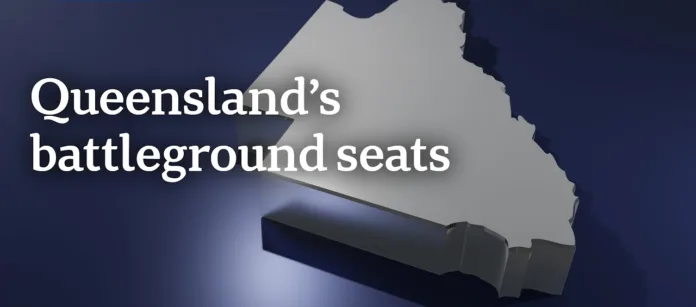With a $20 million pledge for a Cairns school, Labour responds to LNP’s $13 million commitment, igniting a political battle ahead of the state election
The 2024 Queensland state election is gaining momentum as the major parties engage in a fierce contest over funding for education, among other key issues. In a significant move, the Labor Party announced a substantial $20 million investment for a performing arts centre at Whitfield State School in Cairns, just days after the Liberal National Party (LNP) pledged $13 million for the same project. This escalation has sparked a heated exchange of words between the two parties as they vie for voter support in Far North Queensland.
In a press event held on October 7, 2024, Labor’s Cairns MP, Michael Healy, accused the LNP of consistently underfunding essential projects, positioning Labor as the party ready to deliver substantial financial support to educational institutions. “The LNP has neglected our schools for too long. We are committed to investing in our children’s futures,” Healy declared, reinforcing Labor’s stance as the party prioritising education and community welfare.
As the election draws closer, the LNP’s response to the cash splash came from Jarrod Bleijie, who took a sharp swipe at Labor’s handling of the upcoming 2032 Olympics. He referred to Premier Steven Miles’ management as “bungling,” suggesting Queenslanders now perceive him as “a bit of an embarrassment.” Bleijie, speaking from Townsville, expressed the LNP’s intention to conduct an independent review of the Games’ preparations, claiming, “Queensland has had the Games for over 1,100 days, and Labor has no plan to address the challenges ahead.” His remarks illustrate the LNP’s strategy of holding the incumbent government accountable for perceived failures.
In addition to the funding fray, the campaign trail witnessed a poignant moment as LNP candidate for Mundingburra, Janelle Poole, openly discussed her recent cancer diagnosis. She revealed that persistent back pain, which she initially attributed to the rigours of doorknocking, turned out to be a more serious health issue. Despite her condition, Poole remains determined to continue her campaign for the Mundingburra seat, previously held by David Crisafulli until 2015. “I’m not backing down. I want to fight for my community, and I believe I can make a difference,” she stated, resonating with voters who admire her resilience.
However, the LNP faces challenges beyond funding and health. Opposition Leader David Crisafulli found himself under scrutiny regarding the party’s stance on abortion. He was unable to definitively rule out denying his MPs a conscience vote on the matter if the LNP comes to power. Former frontbencher Jann Stuckey raised concerns that the LNP could potentially change existing abortion laws, igniting fears among voters about the future of reproductive rights under a conservative government. Crisafulli faced multiple questions about whether he would allow MPs to vote freely on private members’ bills related to abortion, leaving many constituents uncertain about the LNP’s true intentions.
The unfolding narrative of the election campaign is becoming increasingly complex, with each party attempting to assert its vision for Queensland. Labor’s cash splash and commitment to education have put them in a strong position, while the LNP is fighting back with critiques of Labor’s management of significant projects, including the upcoming Olympics. The discourse surrounding personal health, as demonstrated by Poole’s story, adds an emotional dimension to the campaign, connecting with voters on a human level.
As the days progress, Queenslanders are closely watching how these political dynamics will evolve. The stakes are high as both major parties prepare for the elections on October 26, with education, health care, and social policies likely to dominate the conversation. The outcome will undoubtedly shape the future of governance in Queensland, making this election one of the most pivotal in recent history.
As the campaign continues, both Labor and the LNP will need to navigate these pressing issues while also appealing to the electorate’s aspirations and concerns. With funding pledges and contentious debates taking centre stage, the political landscape in Queensland remains dynamic, and the final result is still too close to call.
